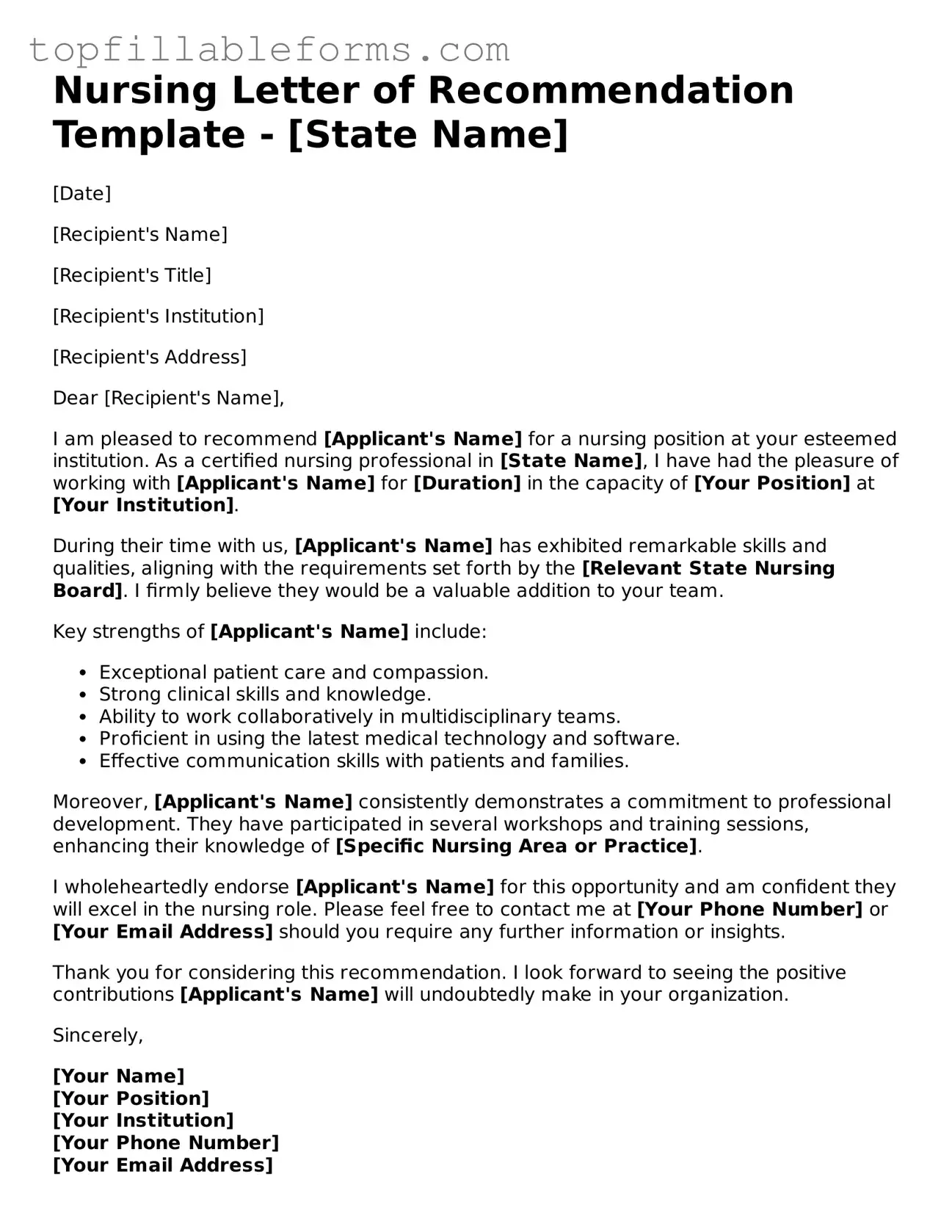Free Nursing Letter of Recommendation Form
The Nursing Letter of Recommendation form is a crucial document that supports a nursing candidate's application by providing insights into their skills, character, and professional experiences. This form is often required by nursing schools and employers to assess the applicant's qualifications and readiness for the nursing profession. A well-crafted letter can significantly enhance a candidate's chances of success in a competitive field.
Open Nursing Letter of Recommendation Editor Here

Free Nursing Letter of Recommendation Form
Open Nursing Letter of Recommendation Editor Here
Finish the form now and be done
Finish your Nursing Letter of Recommendation online by editing, saving, and downloading fast.
Open Nursing Letter of Recommendation Editor Here
or
▼ PDF File
